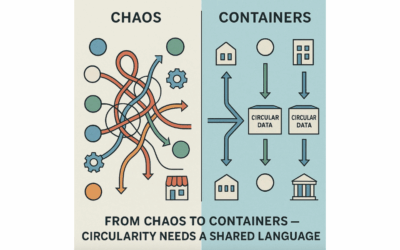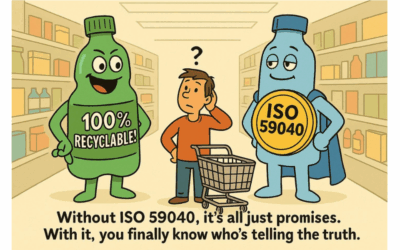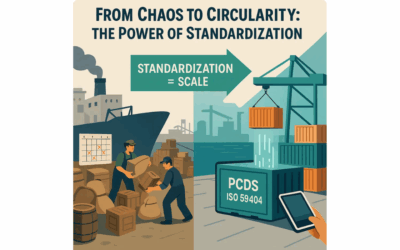The Hidden Lesson of Strategy Games: Infinite Growth Has No Reset Button
The Growth Loop in Games
Most strategy games begin the same way: a small base, a handful of resources, and a vast map waiting to be conquered. The rules are simple: expand faster than your rivals, or risk defeat.
The design is elegant. Players collect resources, reinvest them into infrastructure, technology, or armies, and then repeat the cycle. Each turn compounds their advantage. For gamers, this is rewarding. For designers, it creates depth. For producers, it sustains engagement and revenue. The logic is compelling: growth is the only path to success.
What Games Leave Out
Yet something important is missing. In these virtual worlds, forests regenerate, mines never run dry, and pollution is absent. Waste disappears, and the map is always playable. The growth loop has no friction, no limits, no consequences.
This is where the parallel to our real economy becomes unavoidable. We have designed our economic system around the same assumptions as our games:
- Growth is mandatory — without it, systems collapse.
- Ecological costs are externalised or ignored.
- Survival depends on expanding faster than competitors.
In games, this logic makes for tense, addictive play. In reality, it creates a dangerous blind spot. There is no “next round” when resources are exhausted, no reset when ecosystems collapse, no extra map when planetary boundaries are breached.
Games as Laboratories
To be fair, games are not only propaganda for infinite growth. They are also safe laboratories. They allow players to test decisions, explore scenarios, and imagine futures in ways few other mediums can. And some titles already challenge the growth paradigm:
- Frostpunk forces players to balance survival against environmental collapse.
- Anno 2070 models pollution and scarcity as constraints.
- Indie projects like Eco experiment with circular systems and regeneration.
Beyond these examples, even the most iconic titles rarely integrate real-world limits. Civilization, for instance, rewards relentless expansion, industrialization, and conquest — while the collapse of ecosystems or overuse of resources is barely a footnote. SimCity and Cities: Skylines introduce pollution and traffic, but players can always bulldoze, rebuild, or simply start again. Games like Factorio make extraction and automation the heart of the challenge, but rarely ask what happens when the planet is mined dry. These mechanics keep gameplay engaging, but they also reinforce the illusion that growth can continue forever without meaningful consequences.
The System Critique
Strategy games unintentionally reveal the structural flaw of our growth-dependent economy: we treat infinite expansion as the natural state of play. But unlike in digital worlds, our one shared planet cannot sustain endless cycles of extraction and expansion.
There are, however, alternative winning conditions. Instead of equating success with scale, we could measure it in:
- Well-being — the health, education, and satisfaction of people.
- Knowledge growth — innovation, science, and culture that expand without exhausting resources.
- Circular value creation — systems designed to regenerate, reuse, and restore.
- Resilience — the ability of communities and companies to adapt and thrive within limits.
Rewriting the Rules
The opportunity is clear. If games change the rules — if they build planetary boundaries, circular loops, or well-being metrics into their victory conditions — they could do more than entertain. They could train a generation not only to grow, but to prosper within the limits of one planet.
The hidden lesson is simple yet urgent: growth may be a winning condition in games, but in reality it is the very rule we must rewrite.
👉 If your organization wants to explore how to apply circular economy principles, resilience strategies, and sustainable value creation in practice, reach out to us via PositiveImpakt to learn more about our services.




0 Comments